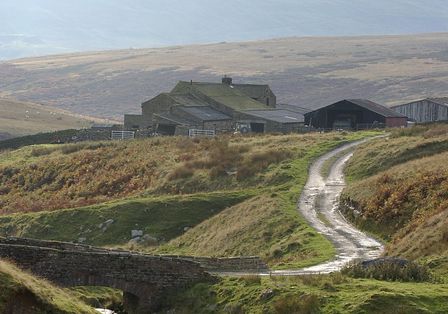Hill farming hangs in the balance

While farmers accuse the government of “incompetence” and berate the NFU for a lack of leadership, they know those issues can wait, writes Jeremy Hunt, north-west correspondent. For now they have one priority – saving their businesses from ruin.
As the stranglehold of foot-and- mouth movement restrictions plunges vast areas of rural Britain into financial chaos, the need to move thousands of breeding sheep and suckled calves off farms is reaching breaking point.
The two suicides reported in the north this week – one a farmer and the other a farm merchant – are the reality of this disaster.
For two months entire rural communities have been slowly suffocating. The timing of this year’s outbreaks is casting a far heavier shadow across upland farming than 2001’s outbreak.
Between August and October auctioneer David Pritchard of Harrison and Hetherington would normally put 300,000 head through the sale rings. This week the trade was still waiting for a date when livestock markets could re-open.
That reality is typified by one Cumbria hill farmer near Penrith. Normally all his Mule gimmer lambs would have been sold by now, plus 200 Mule wether lambs. This week almost 650 sheep were still on his farm, unsold.
Hardest hit of all are the high fell farms, where there has been little or no income for months. Their grass is disappearing fast. Even if there was an option to move Mule gimmers to grass keep, there is no cash to pay wintering costs. These breeding lambs have to be sold or, at worst, slaughtered.

The very future of many hill farming families hangs in the balance.
And the question many ask of Gordon Brown is: “Why was your foot-and-mouth contingency plan so lacking in detail about coping with the disease at such an important time of the year for livestock marketing?”
- Letter of the Week, p34.
